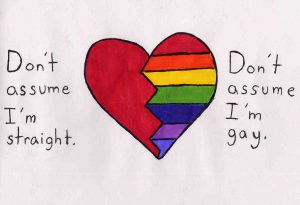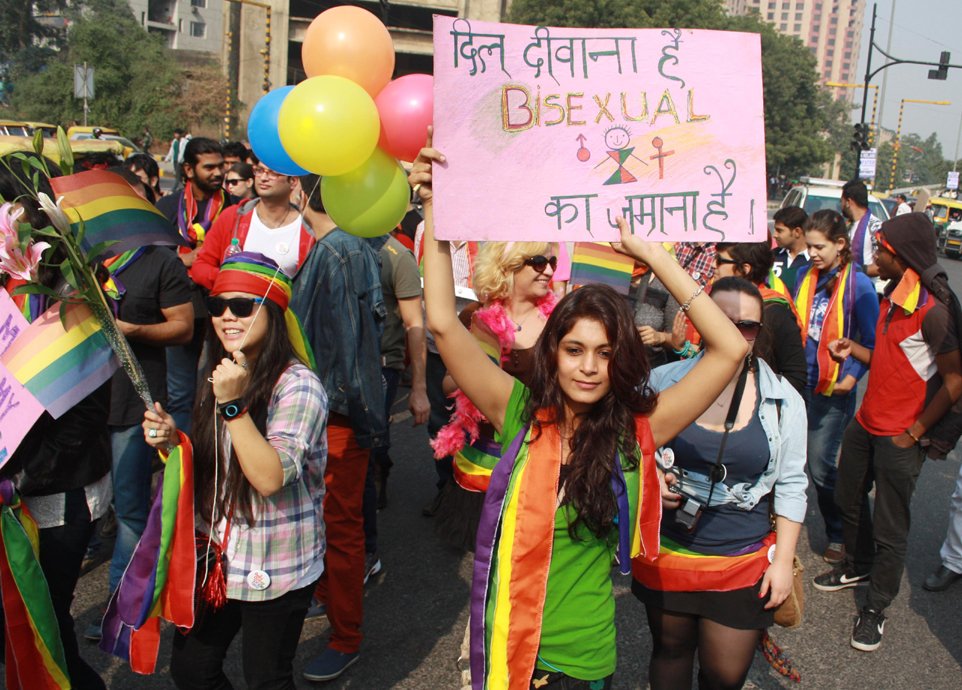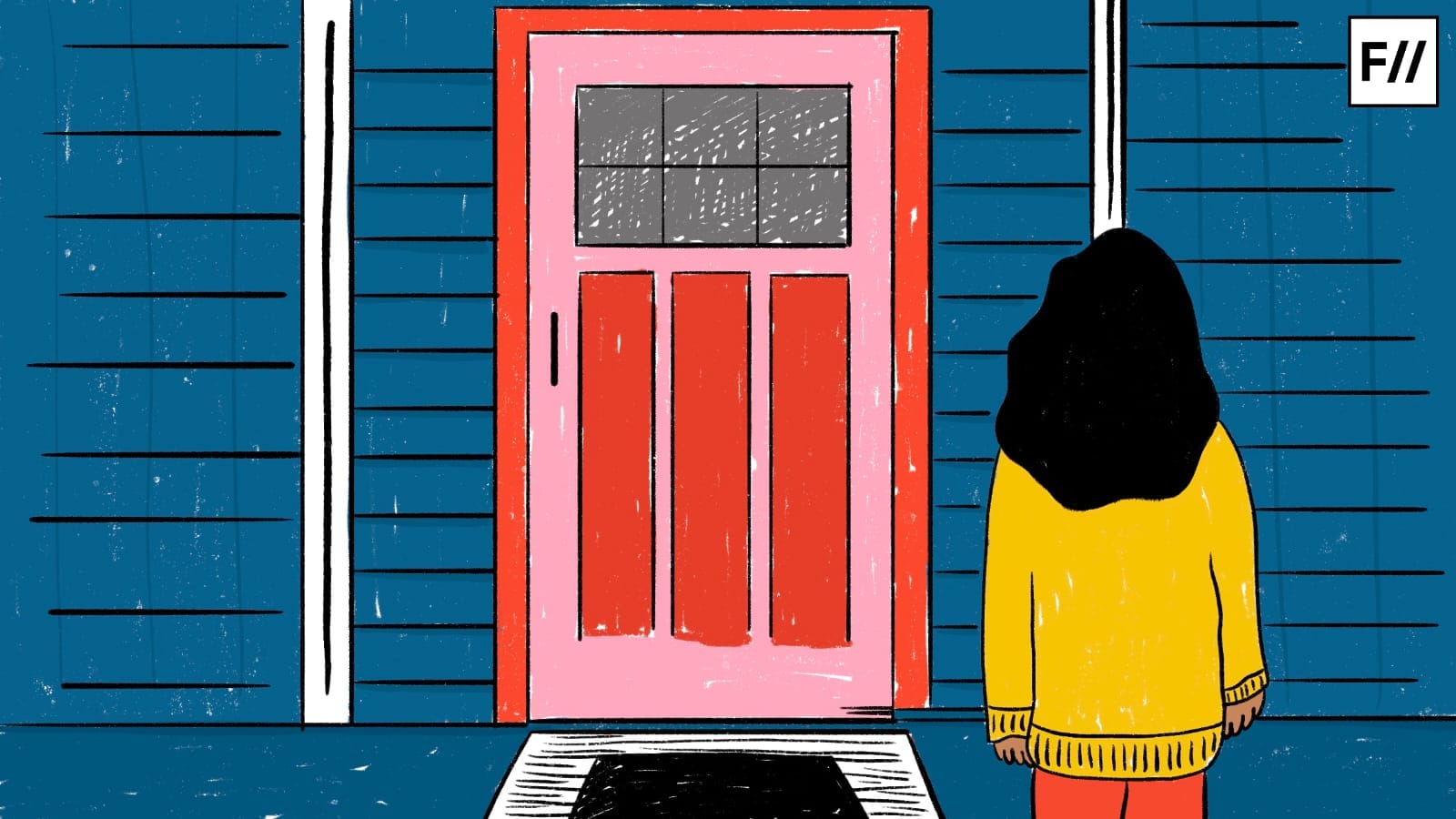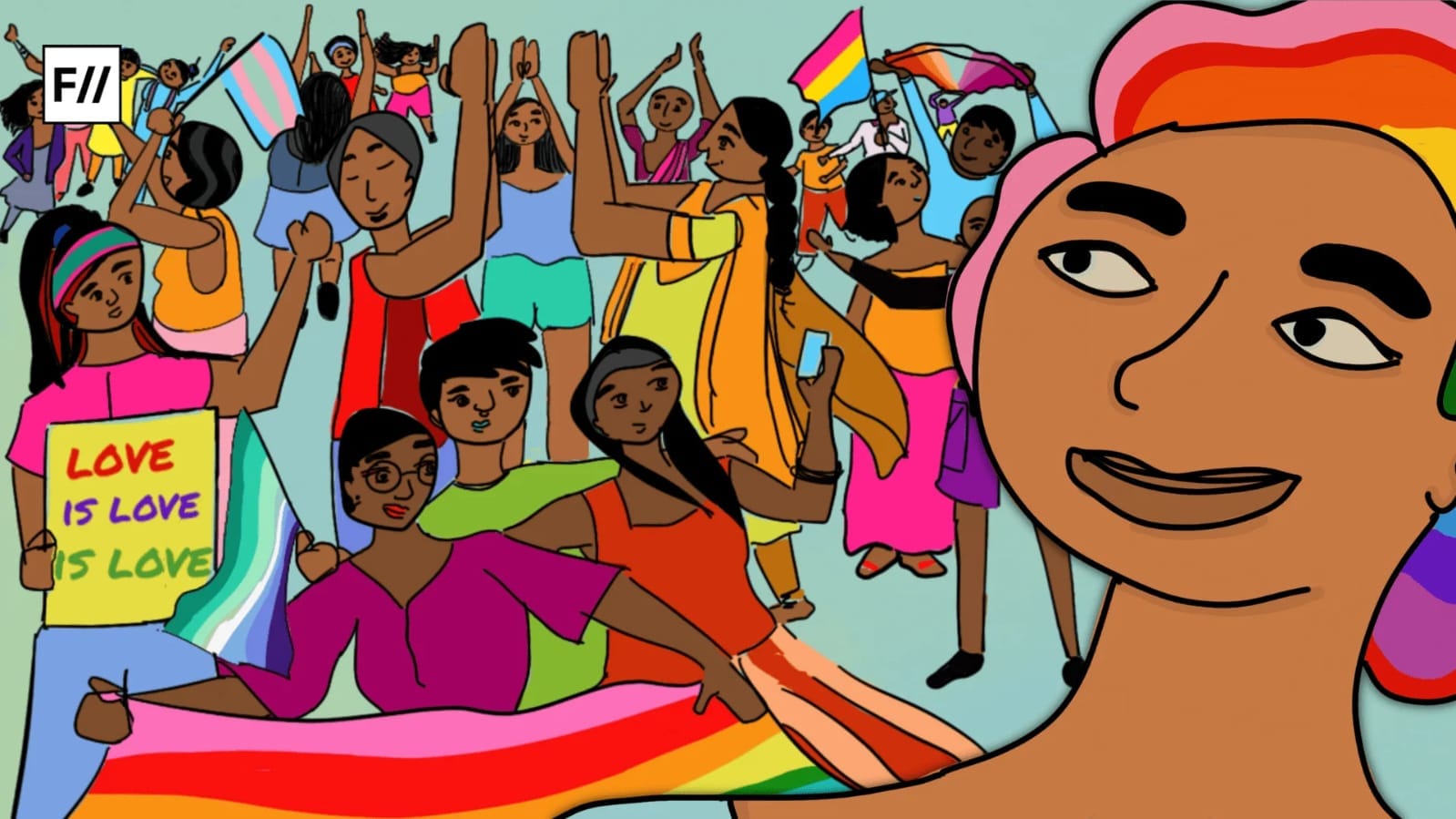September 23rd is recognised worldwide as Bi Visibility Day – a day of celebration and recognition of bisexual history and culture. It also marks the commencement of Bi-Week. The movement started in 1999 to spread awareness about bisexuals and acknowledge their contribution to the fight against inequality and inclusion.
Despite being included in the acronym LGBTQIA+, struggles faced by the bisexual community are often pushed to the side or erased. The double-edged sword of discrimination looms over bisexuals from both queer as well as straight spaces. They have to fight for recognition and validation and inclusion in queer spaces. Negative stereotypes surrounding bisexuality also contributes towards the stigma against bi people.
One such connotation comes in the form of a question – “Why can’t bisexuals just pick a side?” Or “Why would you choose to be in a queer relationship when you can avail the benefits of heterosexual privilege by being with someone of the opposite gender?”. Because, supposedly bisexual people are predisposed with a choice that seemingly skipped monosexuals (people attracted to only one gender).

Image Source: Gaysi Family
But the fact boils down to this – we just can’t – just as someone who is gay and is attracted to a member of the same sex or someone who is straight is attracted to the opposite sex. The same way, bisexual people can’t choose who they are attracted to. Yes, we can still have a preference for one gender over the others but that doesn’t necessarily mean we are actively choosing to be with someone because it is relatively easier in society and nor should we have to.
Also read: Dear Men, Here Are 10 Things Not To Say To A Bisexual Man
This belief that bisexual people can nitpick their attraction on the basis of gender or genitalia and are, therefore ‘better off’ dating someone of the opposite sex is harmful. It is this idea that have led to bisexual and pansexual women, and unfortunately even lesbians, suppressing their feelings towards someone of the same sex due to notions of compulsory heterosexuality.
“You’re either gay or straight” is what a friend of mine told me when I came out to her. This need to put one’s identity into boxes can be problematic at times. Bisexuals are ostracised because they don’t conform to the either ends of the spectrum – straight and gay. So people who identify somewhere between the straight and gay binary (that also includes pansexual) often get overlooked or their sexuality is somewhat less ‘valid’. Bisexuality is a valid sexuality on its own, we are not half-gay or half-straight, neither is it “a stop on the train to gayville” as a cringy Netflix show will have you believe.
Bisexuality is a valid sexuality on its own. We are not half-gay or half-straight, neither is our sexuality “a stop on the train to gayville”.
With the regressive and archaic section 377 being struck down, channels of communication regarding inclusivity for LGBTQIA+ folks have opened up, but unfortunately, bisexuals were still visibly excluded from the narrative.
There are a slew of other stereotypes that invalidate bisexuality. The most common of them is that “Bisexual women are pretending to like girls for attention and bi men are just afraid to come out as gay”. This typecast, again, sweeps our identity under the rug and bisexuals may sometimes feel like tethering on a rope with neither side fully accepting you. Though I would like to point out, biphobia in the straight community is much more rampant than in the gay community.
Another assumption is that bisexuality is somehow considered synonymous with promiscuity or polygamy. The follow up to “I identify as bisexual” usually follows with a “so you must be into threesomes then?” – especially by straight men. Some bisexual people are in polyamorous relationships, just as some gay people or straight people are. It is in no way only affiliated to bisexuality. Similarly, not all bisexuals want a threesome. People who identify as bisexual also have to deal with bigotry veiled in offhand remarks. The notion that bi people are unfaithful is also one such damaging stereotype.
Bi-erasure is another common aspect of living as a bisexual individual. Bi-erasure is an attempt to invalidate the bisexual community in day-to-day life, media, and popular culture, or sometimes denying the existence of bisexuality altogether. A bisexual woman is called a lesbian when she is in a relationship with a girl and straight when with a guy. Basing one’s identity on their partner is very detrimental to bisexuals and contributes towards erasing their identity. The notion that bi people eventually pick a side based on their partner when they enter a long-term relationship or marriage also contributes to bi-erasure.
I will still be bisexual whether I am in a relationship with a man or a woman. My identity does not change nor does it depend on my partner.
I will still be bisexual whether I am in a relationship with a man or a woman. My identity does not change nor does it depend on my partner. No, we are not going to wake up one day and magically decide to ‘turn gay’ or ‘be straight’. Another facet that contributes to bi-erasure includes comments with biphobic undertones passed as ‘jestful remarks’ on TV shows. Orange Is The New Black, for example, has a bisexual lead who is often referred to as a ‘lesbian’ by her (now ex) fiancé and family members and ‘straight’ by her wife (then girlfriend) as well as her friends.
The isolation and discrimination faced by bisexuals make it less likely for them come out and feel confident in their sexuality. Despite accounting for the largest part of the LGBTQIA+, bisexuals are twice as unlikely to come out. They are also apprehensive of using the term due to fear of prejudice and not being taken seriously. Their identity is questioned and scrutinised at every turn, they are considered ‘too gay’ for straight folks and not ‘gay enough’ in queer spaces. Owing to this lack of support and acceptance, bisexuals are at a higher risk of experiencing depression and anxiety. There is a need for more inclusivity and safe spaces for bisexuals.
Also read: My Experience Of Coming Out As A Bisexual Woman In India
As the pinnacle of bisexual representation on mainstream television Callie Torres said –
“I’m bisexual. So what? It’s called LGBTQ for a reason. There’s a B in it and it doesn’t mean badass. Okay, it does, but it also means Bi”.
Featured Image Source: Auto Straddle
About the author(s)
Saumya is an intersectional feminist who strings sentences together for a living.





Hi Saumya, you are nominated for this post on writing about LGBT+ issues on Orange Flowers Awards. Please check http://www.orangeflowerawards.in and your nomination on https://woobox.com/pinkcf/gallery?web=1